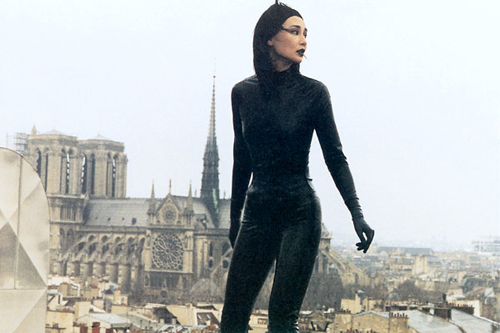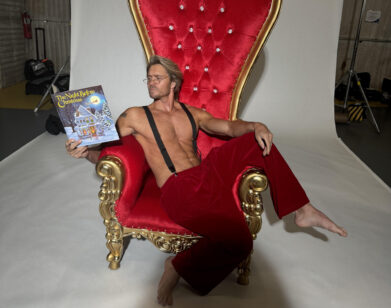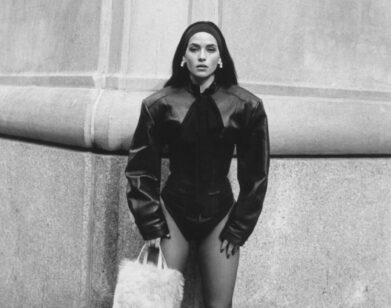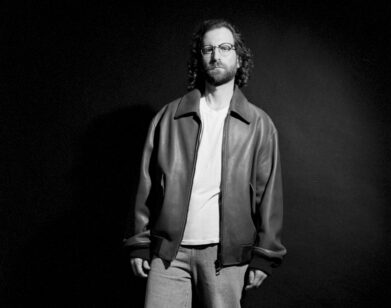Rental Release: Irma Vep

Irma Vep (1996) is one of the best movies ever to feature non-native English speakers forced to communicate with each other primarily through English. (If you’re aware of this phenomenon, which often characterizes international social smorgasbords, you know that it is of note.) The film, directed by Olivier Assayas, is also one of the most hip and energetic films about filmmaking. Most of its actors are French, but one, Maggie Cheung, is Chinese, and plays “herself.” This is the period in Cheung’s career efore attaining her In the Mood for Love megastar status, but after cementing herself as the best actress in Hong Kong, with Centre Stage and earlier Kong Kar-Wai projects.
Maggie Cheung’s character (Maggie) has been chosen by a Nouvelle Vague-director-in-decline, appropriately portrayed by Nouvelle Vague enfant terrible posterchild Jean-Pierre Léaud, to star in a remake of the classic French silent serial, Les Vampires. She is the titular character, Irma Vep, one of the sleekest, sexiest, most dangerous villains in all cinema history. If these meta-cinematic inter-minglings sound a bit confusing on the written page, they play out perfectly on screen.
That’s Assayas’s gift to the audience: his ability to synthesize a confusion of content and a disparity of styles into one coherent emotional experience. Irma Vep borders on a collage film, collecting scenes from the original Les Vampires, footage from Cheung’s real, action-packed Hong Kong past, dailies from the Assayas shoot, video from a hilarious on-set publicity interview with Maggie, an excerpt from a vintage French political film, and an experimental rough cut, all mixed with what one might call “the actual film.”
The complete film holds together wonderfully, due to Assayas’s incessantly fluid camera, which moves between different crewmembers—on sets, during dinner, and at raves—with a whimsical dexterity, reminiscent of Altman’s best. Through all of this camera mobility, we never lose sight of Cheung’s charming fish-out-of-water centrality. Her sensitivity and playfulness are always in sight, whether she’s nimbly avoiding a lesbian tryst or stealing jewelry while listening to the Sonic Youth soundtrack in her head, Maggie’s star power shines strong in a movie concerned with the allure of cinema starlets. Cheung is the smooth Marcello in this Assayas-helmed 8 ½ (a slightly more ambitious undertaking) and the polar opposite to Philip Seymour Hoffman’s detestable playwright in Synecdoche, New York (a comparatively lifeless piece of filmmaking).
Zeitgeist’s DVD release has some great short documentaries, a nice physical design (even though the menu has an off-the-mark bland, grunge aesthetic), interesting personal essays from Assayas, and a good-looking transfer. If you have 12 hours to kill, watch this on a double bill with Louis Feuillade’s alternately restrained and insane 1915 serial, Les Vampires.






